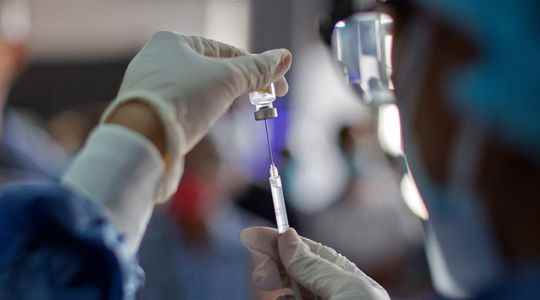Accelerate the vaccination campaign for the elderly to avoid a wave of hospitalizations. China announced on Tuesday that it wanted to strengthen the protection of vulnerable people against Covid-19 as it faces a record number of contaminations in recent days. But with which vaccines?
The country mainly has two “in-house” products, from two laboratories, one public (Sinopharm), and the other private Sinovac. Both operate on the inactivated virus principle. Robust and proven technologies based on the principle of a virus rendered inoperative by a treatment, allowing an immune response to be triggered. “These are two inactivated vaccines of very conventional manufacture, which have been fairly well evaluated in trials abroad, because they have flooded the world”, explains Antoine Flahault, professor of epidemiology at the Institute of Global Health in Geneva. . On the planet, more than 50% of vaccines come from China, and they have been distributed in many countries such as Chile, Venezuela, or Ukraine.
While the first real-life data on their efficacy initially showed disappointing results, observations after a booster dose seem to confer solid protection against severe forms. “With two injections, RNA vaccines show better performance, but after three doses of Chinese vaccines there are no more differences with messenger RNA vaccines.”
A study of the two vaccines in Hong Kong
Much of the lessons from Chinese vaccines come from the campaign in Hong Kong. On this Chinese territory, the population received equal doses of Chinese Coronavac (developed by the Sinovac laboratory) and Western messenger RNA vaccines. A study published in The Lancet in July looked at these 13.2 million injections given to Hong Kong’s 7.4 million people between December 31, 2020 and March 16, 2022. She points out that “two doses of either vaccines have protected against severe disease and death within 28 days of a positive test, with higher efficacy in adults aged 60 or older with BNT162b2 (Pfizer-BioNTech’s vaccine)”. But “three doses of either vaccine offered very high levels of protection against serious or fatal outcomes” (about 97%), the study authors point out.
As for the vaccine developed by Sinopharm, the figures were also reassuring. “Data collected in Argentina from January to June 2021 suggests that after two doses, vaccine efficacy against Covid-19-related mortality is 84%, in people aged 60 years and over. “, notes the WHO. In addition, several studies have shown that this vaccine could very well be combined with a booster injection that works using messenger RNA.
Vaccination, essential for the exit from zero Covid
For the moment, the country does not have a Chinese vaccine or booster specifically targeting Omicron at the moment, none having been approved by the authorities to date. Beijing is also working to develop its own Messenger RNA vaccine, without success so far, but several candidates are currently in clinical trials.
It is now less the question of the effectiveness of vaccines that is raised than that of the number of elderly people protected. Only 65.8% of over-80s are fully immunized, National Health Commission officials said at a press conference on Tuesday.
The insufficient rate of vaccination in the country, and particularly among the elderly, is also one of the arguments regularly put forward by the government to justify its strict “zero Covid” health policy. For two years, China has lived to the rhythm of repeated confinements, quarantines on arrival from abroad and almost daily tests for the population. “The exit from zero Covid is above all vaccination”, reminded L’Express, Antoine Flahault.
